Conflict Uncovered with Elliot Chodoff (Another Rough Day in the Middle East)
Welcome to ”Conflict Uncovered,” hosted by renowned military and strategic analyst Elliot Chodoff. This podcast delves deep into the complex and often misunderstood conflicts in the Middle East, providing listeners with a comprehensive understanding of the region’s current events and historical contexts. Episode Formats: Current Events Episodes: Stay informed with our timely updates and analyses of the latest developments in Gaza, Lebanon, and beyond. Elliot Chodoff offers expert insights into the ongoing conflicts, military strategies, and geopolitical shifts that shape the Middle East toda
Episodes
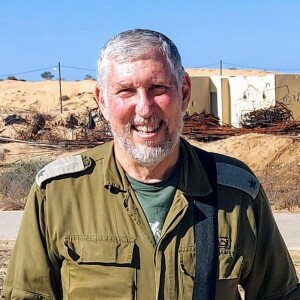
Thursday Sep 05, 2024
Sept 5: Netanyahu's Speech and The Philadelphia Corridor
Thursday Sep 05, 2024
Thursday Sep 05, 2024
Prime Minister Netanyahu's recent speech focused on the Philadelphia corridor and the terms of a potential deal for releasing hostages and achieving a ceasefire. The speech was self-centered and did not address the real issues at hand. It was also poorly timed, as it took place in the middle of negotiations. The Philadelphia corridor is a strip of land and road along the border with Egypt that has been used by terrorists for smuggling weapons and people. Netanyahu's government has neglected the importance of controlling the corridor in the past. Hamas refuses to compromise on the Philadelphia corridor, the Rafiach crossing, and the Nitzarim corridor, as they want to regain control of northern Gaza. The difficult question is how far Israel should go to reach an agreement with Hamas without compromising its security.
Takeaways
Netanyahu's speech was self-centered and did not address the real issues at hand
The Philadelphia corridor is a key area for smuggling weapons and people
Hamas refuses to compromise on the Philadelphia corridor, Rafiach crossing, and Nitzarim corridor
Israel must consider the potential risks and costs of reaching an agreement with Hamas

Tuesday Sep 03, 2024
September 3: Elliot Chodoff and Yisrael Ne'eman on Hamas- Part 1
Tuesday Sep 03, 2024
Tuesday Sep 03, 2024
Host Elliot Chodoff and Yisrael Ne'eman discuss the failure to understand the true nature of Hamas and the ongoing conflict in the Middle East. They highlight the misconception that economic factors are the primary driver of people's actions, when in reality, ideology and religion play a significant role. They also discuss the liberal hubris of projecting Western values onto others and the difficulty in accepting that there is no solution other than fighting. The conversation emphasizes the need to defeat and discredit jihadism and the importance of understanding the historical background and ideology behind it.
Visit The Ne'eman Academy (neemanacademy.com) to learn more about our special guest, Yisrael Ne'eman
In this Episode:
Economic factors are not the primary driver of people's actions; ideology and religion play a significant role.
There is a tendency to project Western values onto others, leading to a failure to understand the true nature of groups like Hamas.
Accepting that there is no solution other than fighting is psychologically difficult for many people.
The only answer to jihadism is total and utter defeat, along with discrediting the ideology.
Understanding the historical background and ideology behind jihadism is crucial.

Sunday Sep 01, 2024
Sept 1, 2024: Aftermath, Six Hostages Found Murdered in Gaza
Sunday Sep 01, 2024
Sunday Sep 01, 2024
The conversation discusses the recent discovery of the bodies of six hostages in Gaza and the turmoil it has caused in Israel. The host emphasizes that the purpose is not to defend or criticize Prime Minister Netanyahu, but to analyze the situation. The different types of hostage situations are explored, including criminal kidnappings for economic gain, inadvertent hostage situations, and hostage-taking as an insurance policy. The host also discusses the motives behind Hamas' actions and the two sticking points in negotiations: the Philadelphia Corridor and the Nitzarim Corridor.
Takeaways
The discovery of the bodies of the six hostages in Gaza has caused turmoil in Israel.
There are different types of hostage situations, including criminal kidnappings for economic gain and hostage-taking as an insurance policy.
Hamas' actions in holding and murdering hostages are meant to drive a wedge into Israeli society.
The two sticking points in negotiations are the Philadelphia Corridor and the Nitzarim Corridor.

Tuesday Aug 27, 2024
Israel's Preemptive Strike Against Hezbollah
Tuesday Aug 27, 2024
Tuesday Aug 27, 2024
The conversation between Elliot Chodoff and Dov Chodoff focuses on the recent activities in Israel, particularly the preemptive strike against Hezbollah and the ongoing rocket attacks in the north. They discuss the perception of success and victory, the role of Nasrallah and Hezbollah, the failures of the Israeli government, and the need for a new approach in dealing with the situation. The conversation highlights the challenges faced by the residents of the north and the impact of the attacks on daily life. Overall, it emphasizes the need for a comprehensive and effective strategy to address the ongoing threats.

Wednesday Aug 21, 2024
August 21, 2024: The Last Chance SUmmit
Wednesday Aug 21, 2024
Wednesday Aug 21, 2024
The conversation discusses the ongoing last chance summit in the Middle East and why it is not working. The speaker introduces the concept of Rube Goldberg contraptions and explains how the American approach to the summit resembles one. The main themes include the failure of the American approach, the role of Hamas and Sinwar in the conflict, and the artificial urgency created by the United States. The speaker also highlights the importance of hostages and the need to bring them back alive. Overall, the conversation provides insights into the complexities and challenges of the peace process in the Middle East.
Takeaways
The American approach to the last chance summit in the Middle East resembles a Rube Goldberg contraption and is unlikely to succeed.
Hamas leader Sinwar wants an escalation of the conflict and is using hostages as human shields.
The United States has created an artificial urgency in the peace process, placing all the decision-making power in the hands of Sinwar.
The importance of bringing back hostages alive and the need to avoid hostage negotiations in the future.
The complexities and challenges of the peace process in the Middle East.
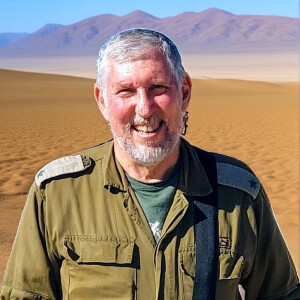
Wednesday Aug 14, 2024
August 14, 2024: Analyzing the Upcoming Summit in Qatar
Wednesday Aug 14, 2024
Wednesday Aug 14, 2024
The conversation discusses the upcoming summit in Qatar and analyzes the dynamics and motivations of the key players involved. It highlights the inconceivability of inviting a terrorist organization like Hamas to a summit and questions the effectiveness of the summit in achieving peace. The conversation also explores the tactics used by Hamas and the role of intermediaries like Qatar. It delves into the objectives of the United States, including preventing an Iranian and Hezbollah strike on Israel. The conversation concludes by summarizing the positions and strategies of the different parties involved.
Takeaways
The summit in Qatar involves key players like Hamas, the United States, Israel, Iran, and Hezbollah.
The invitation of Hamas to the summit raises questions about the effectiveness of the summit in achieving peace.
Hamas employs tactics used by Yasser Arafat in the past to gain concessions without committing to negotiations.
The United States aims to prevent an Iranian and Hezbollah strike on Israel.
The outcome of the summit depends on the whims of Ayatollah Khamenei and the actions of Hezbollah.
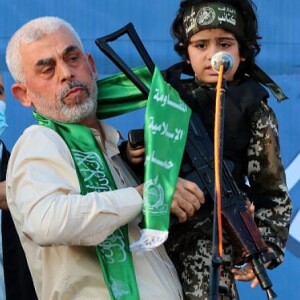
Friday Aug 09, 2024
Friday Aug 09, 2024
This conversation discusses the appointment of Yechia Sinwar as the new leader of Hamas and the implications of his leadership. Sinwar is a hardline fanatic who has no interest in a hostage release deal but instead wants a deal that ends with a Hamas victory. He demands a cessation of the Israeli offensive and a full withdrawal of Israeli troops from Gaza. Sinwar has a history of violence and is known for his role in the October 7th attack on Israel. The conversation also highlights the misunderstanding of Hamas and the fantasy of reaching a grand deal with them.
Takeaways
Yechia Sinwar's appointment as the new leader of Hamas has far-reaching ramifications.
Sinwar is a hardline fanatic who wants a deal that ends with a Hamas victory, not a hostage release deal.
He demands a cessation of the Israeli offensive and a full withdrawal of Israeli troops from Gaza.
Sinwar has a history of violence and is known for his role in the October 7th attack on Israel.
The West's misunderstanding of Hamas and the fantasy of reaching a grand deal with them is concerning.
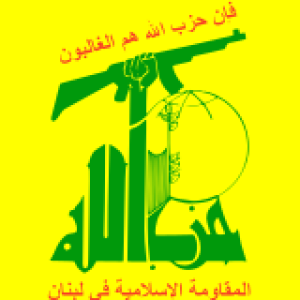
Tuesday Aug 06, 2024
Understanding Hezbollah: Origins and Identities
Tuesday Aug 06, 2024
Tuesday Aug 06, 2024
summary
This conversation provides an in-depth analysis of Hezbollah, its origins, and its relationship with Iran. It discusses the historical context of Shiism and the split within the Muslim world. The conversation highlights the rationality of Hezbollah's actions and its transformation from a terrorist organization to a military force. It also emphasizes the organization's goal of destroying Israel and the danger it poses to the region. The conversation concludes with a discussion on the current situation and the potential for a larger conflict.
Takeaways
Hezbollah is a complex organization with multiple identities, including Lebanese, Iranian, Islamic, terrorist, militia, and political.
The core of Hezbollah is rooted in Shiism, and its leaders are disciples of Ayatollah Khomeini.
Hezbollah's primary goals are to establish an Iranian deterrent force against Israel, turn Lebanon into an Islamic state, and destroy Israel.
Hezbollah has evolved from a terrorist organization to a military force, with an army of about 60,000 and a significant missile arsenal.
The danger of Hezbollah lies in its rationality and pragmatism, as well as its close integration with the Iranian regime.
The current situation in the region is precarious, with the convergence of ideological extremism and Western leadership's lack of action.
Israel faces the challenge of dealing with Hezbollah's military capabilities and the potential for a larger conflict.
Verbal support from the international community is important, but it must be backed by tangible support to ensure Israel's security.
Agreements and ceasefires with Hezbollah are unlikely to be effective, as the organization does not recognize or abide by them.
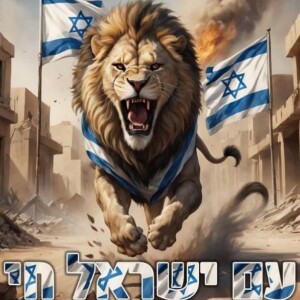
Wednesday Jul 31, 2024
July 31, 2024: Elimination of Major Terrorist Leaders: Fuad Shukr and Ismail Haniyeh
Wednesday Jul 31, 2024
Wednesday Jul 31, 2024
SummaryTwo major terrorist leaders, Fuad Shukr of Hezbollah and Ismail Haniyeh of Hamas, were eliminated in separate strikes by Israel. The strike in Beirut was in response to a deadly Hezbollah attack on a soccer field in Majdal Shams. Shukr was responsible for Hezbollah's weapons acquisition and development. Haniyeh, the elected leader of Hamas, had been in Qatar but was in Tehran for the presidential inauguration. The elimination of high-ranking officers in terrorist organizations has a significant organizational impact. The United States may find it difficult to condemn Israel for taking out an arch terrorist they had a bounty on.
Takeaways
Israel eliminated Fuad Shukr of Hezbollah and Ismail Haniyeh of Hamas in separate strikes.
The strike in Beirut was in response to a deadly Hezbollah attack on a soccer field in Majdal Shams.
Shukr was responsible for Hezbollah's weapons acquisition and development.
Haniyeh, the elected leader of Hamas, had been in Qatar but was in Tehran for the presidential inauguration.
The elimination of high-ranking officers in terrorist organizations has a significant organizational impact.
The United States may find it difficult to condemn Israel for taking out an arch terrorist they had a bounty on.
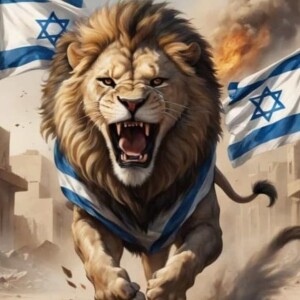
Monday Jul 29, 2024
Monday Jul 29, 2024
Welcome to Conflict Uncovered. In this episode, we delve into the tragic events of the past few days in Israel. On Saturday afternoon, a Hezbollah rocket struck the Druze village of Majdal Shams in the Golan, killing 12 children and wounding dozens more. This devastating incident, referred to as the "nursery school scenario," has placed Israel in a complex strategic dilemma.
The episode explores the immediate international reactions, including condemnations from the United States and the West, and discusses the difficult choices facing Israeli leadership. With Prime Minister Netanyahu returning from Washington, the episode examines the potential military responses and the broader implications for regional stability.
Join us as we analyze the incremental escalation tactics employed by Hezbollah and the challenges Israel faces in balancing retaliation with the risk of a full-scale war. Stay tuned for in-depth insights into this critical situation.

Conflict Uncovered with Elliot Chodoff
Welcome to "Conflict Uncovered," the podcast where we delve deep into the complexities of Middle Eastern conflicts. Hosted by renowned military and strategic analyst Elliot Chodoff, this podcast provides listeners with expert analysis on the geopolitical tensions and military strategies shaping the region.
What is Our Podcast About?
In each episode, we offer a detailed exploration of the ongoing conflicts in Gaza, Lebanon, and beyond. We bring you up-to-date insights on the latest developments, uncovering the historical, political, and ideological forces driving these conflicts. Our goal is to help you understand the broader implications of these events and the intricate dynamics at play.
What Makes Us Unique?
- Expert Analysis: Elliot Chodoff brings decades of experience in military strategy and Middle Eastern geopolitics, providing you with unparalleled insights and a unique perspective.
- In-Depth Coverage: From current events to special topics like the history of Hamas and the ideology of Hezbollah, we cover a wide range of issues with thorough and engaging discussions.
- On-the-Ground Perspectives: Living in Northern Israel, Elliot experiences the realities of regional conflicts firsthand, bringing authentic and real-time insights to the podcast.


